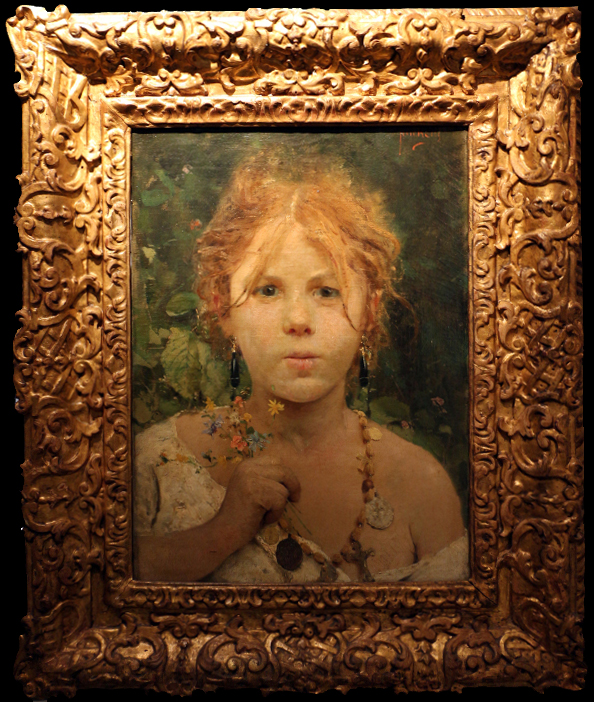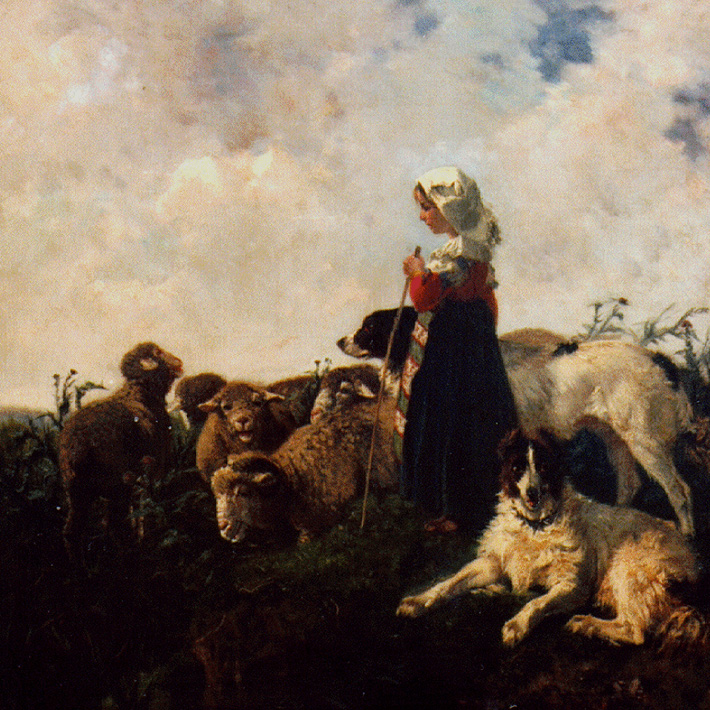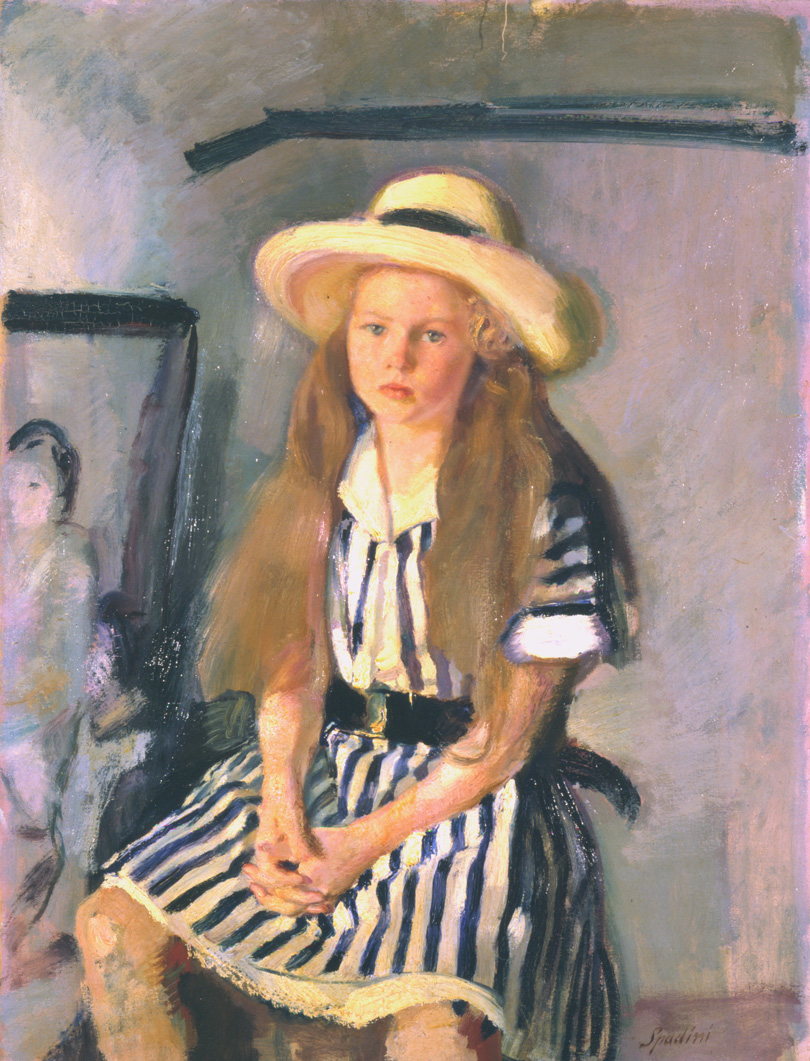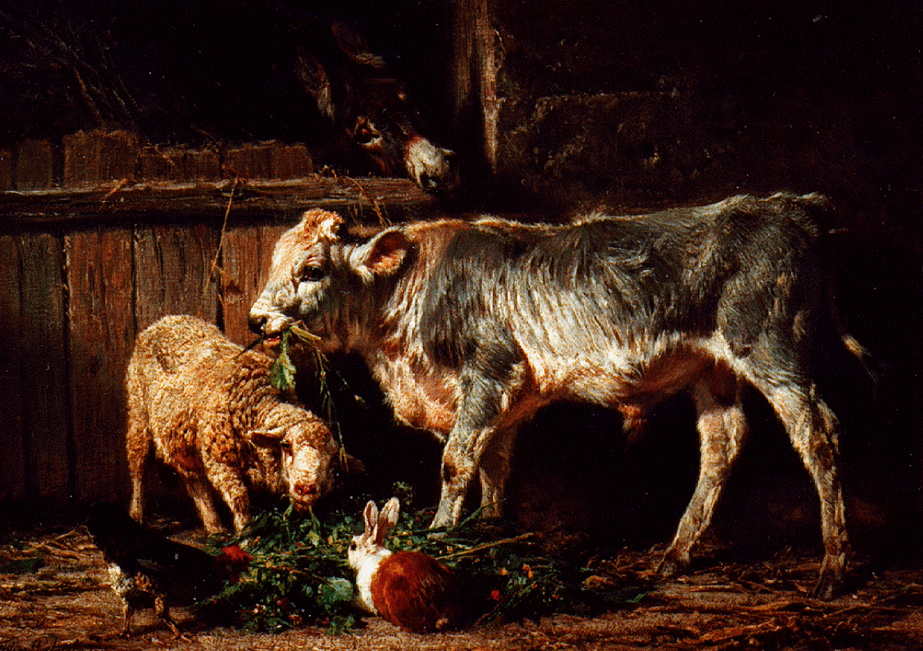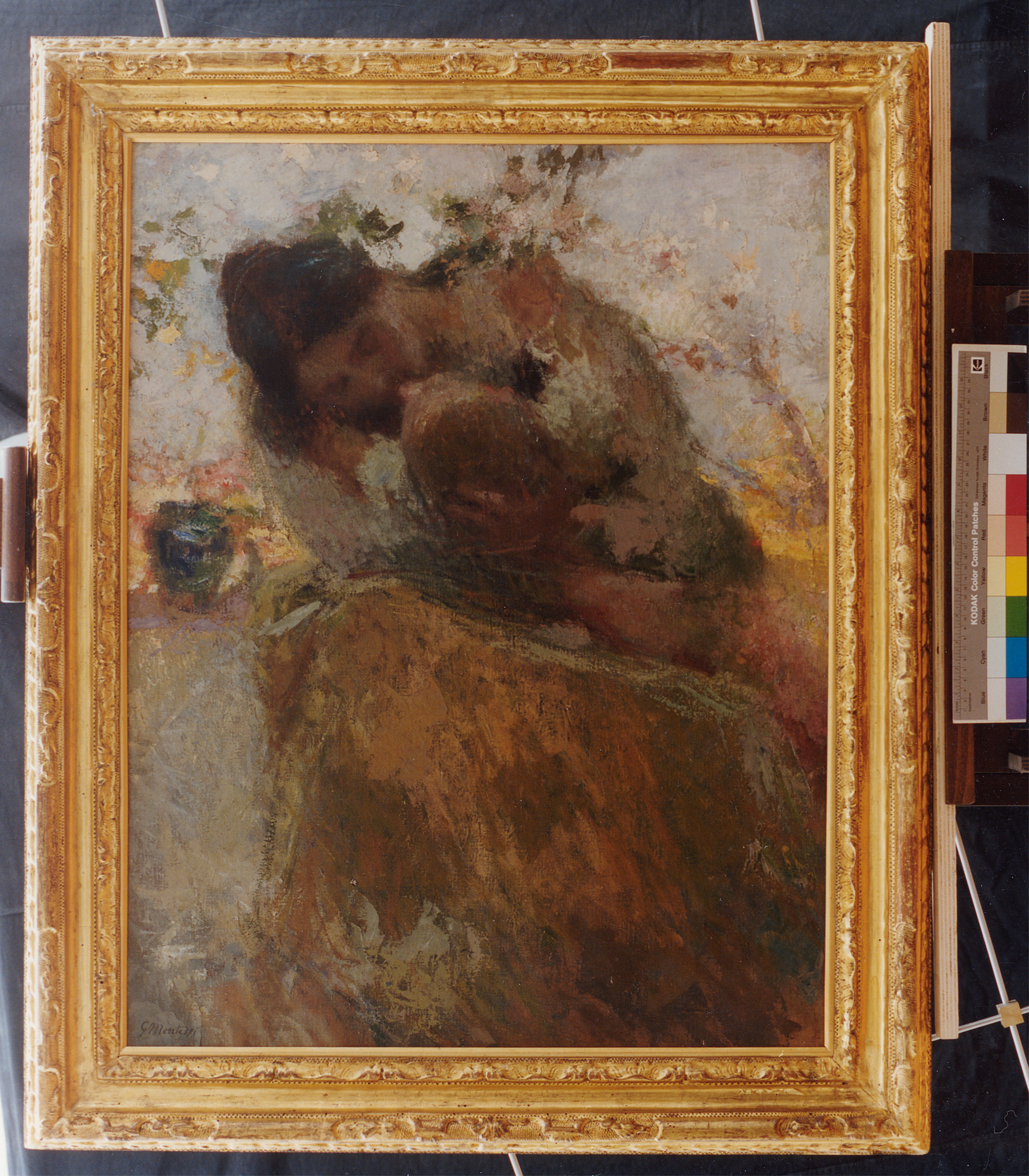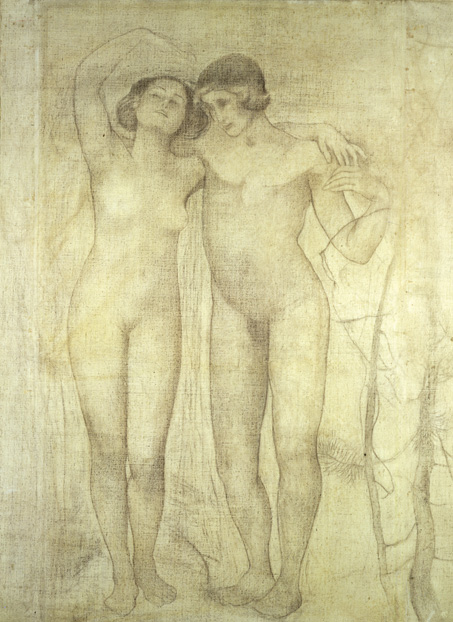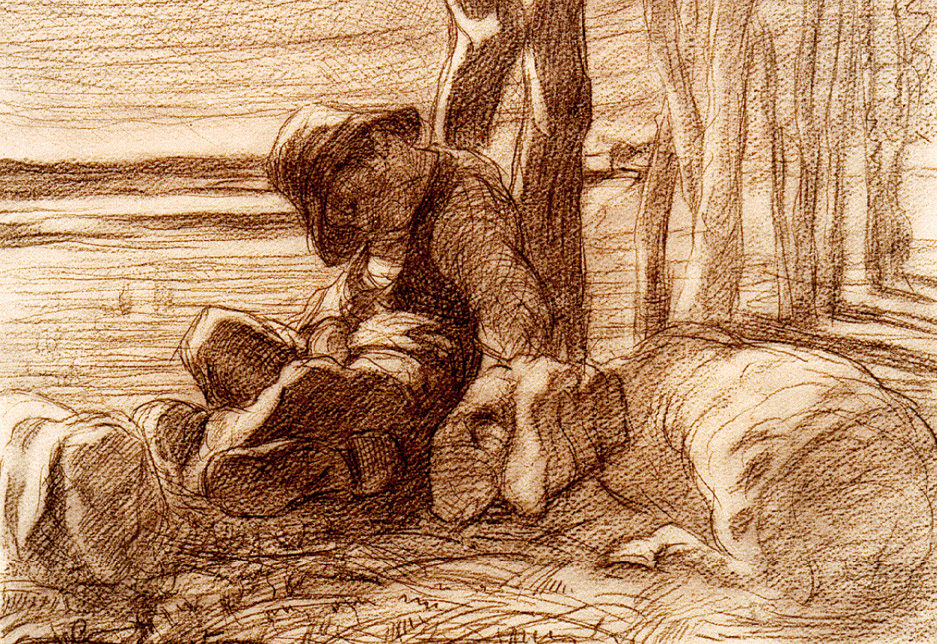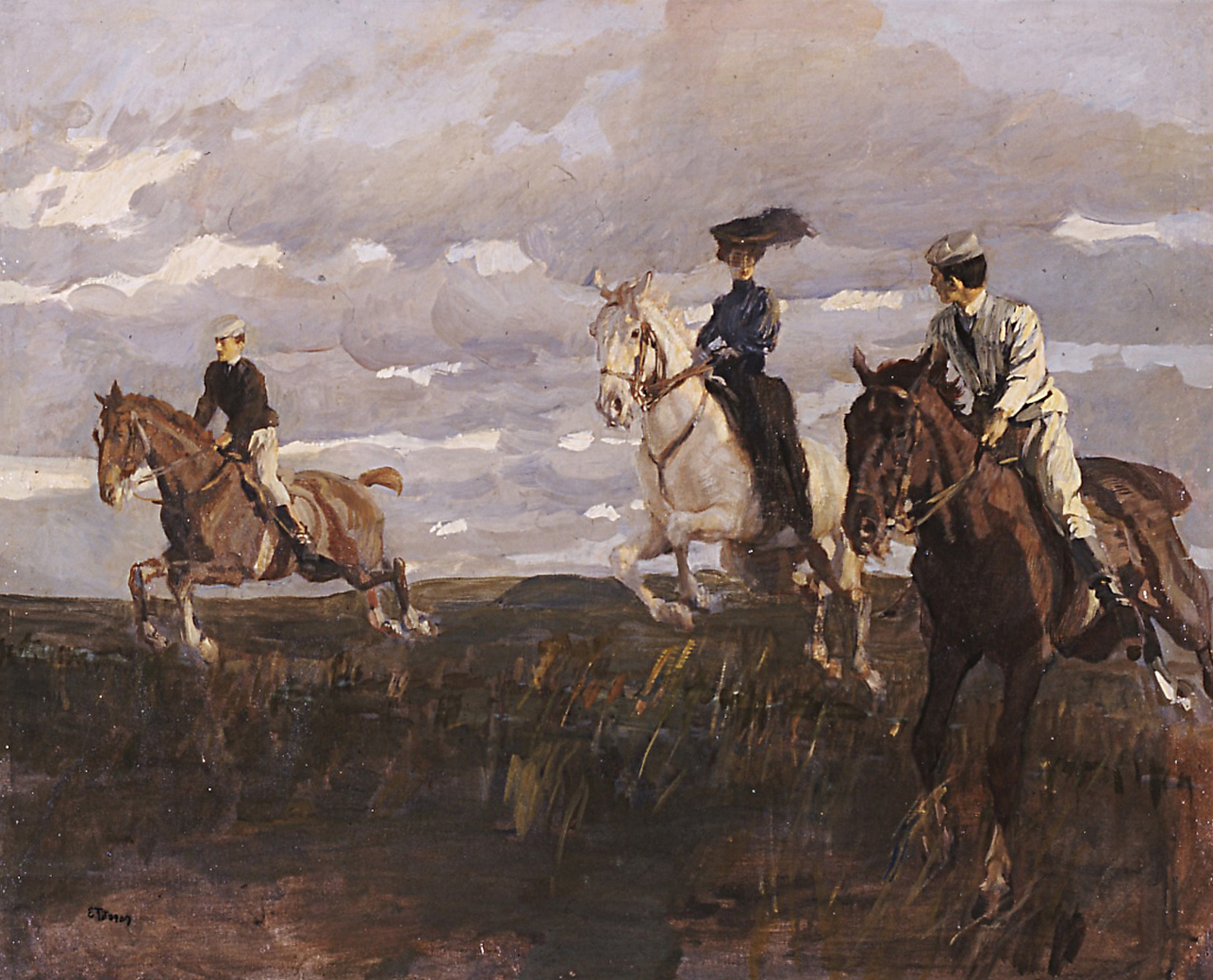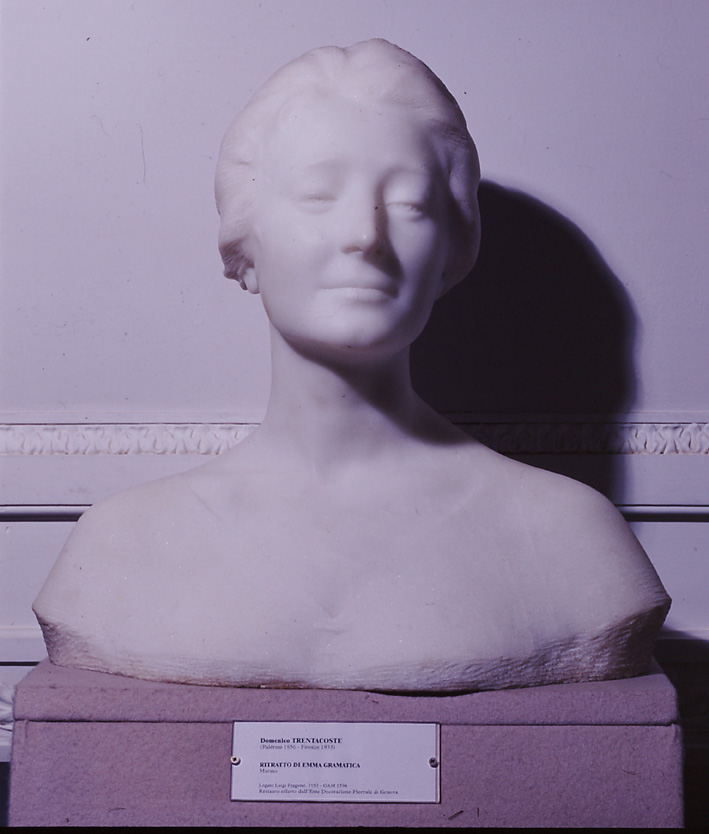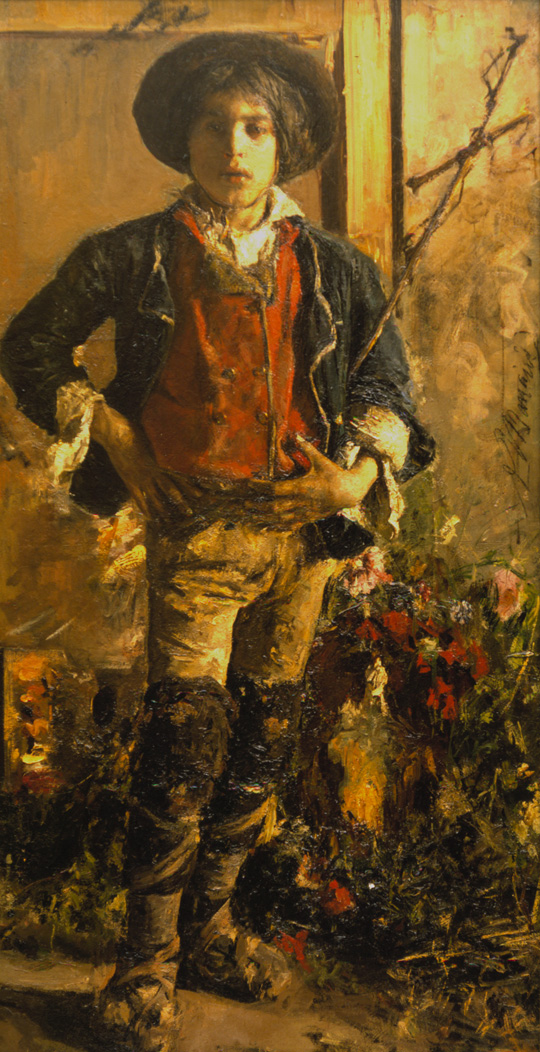
Click here to view image
Shepherd boy in ciocie
Legato Frugone Genova - legato
Mancini, Antonio
painting
1883 - 1883 - XIX
GAM1550
Unità di misura: cm; Altezza: 151; Larghezza: 80
olio su tela
Esposizione commemorativa di Antonio Mancini - Torino - 1940<br>Palazzo Bianco - 1938
The subject refers directly to the paintings of religious processions by the Abruzzo painter Francesco Paolo Michetti, a friend of Mancini, Vincenzo Gemito and Gaetano Esposito, with whom he shared artistic and life experiences. The work can be identified as the painting that Michetti presented at the Milan Fine Arts Exhibition in 1884, which can therefore be dated to around 1883. The central figure is still imbued with an evident naturalism, while in the background - conceived as a vibrant and colourful palette - the elements appear more blurred, in a manner typical of the artist's later work. Both in 1938, at the exhibition organised in Genoa by Orlando Grosso at Palazzo Bianco, and at the “Esposizione commemorativa di Antonio Mancini” (Commemorative Exhibition of Antonio Mancini), held in Turin in 1940, “Pastorello in ciocie” received positive and admiring reviews from critics. Vertical canvas depicting a young shepherd wearing traditional Ciociaria footwear, with a stick under his arm.

